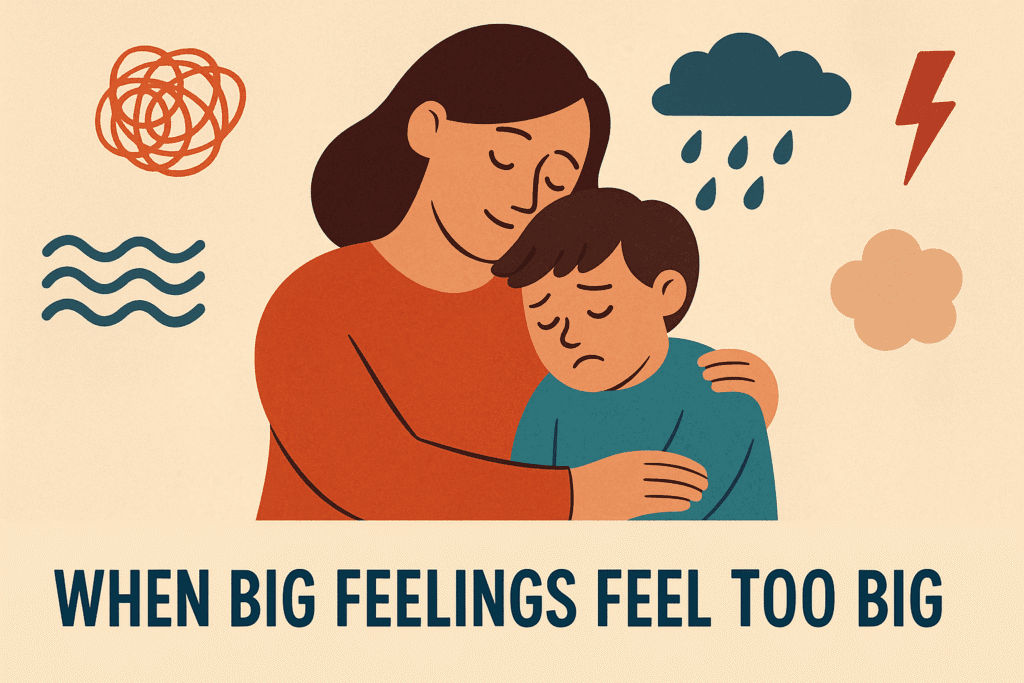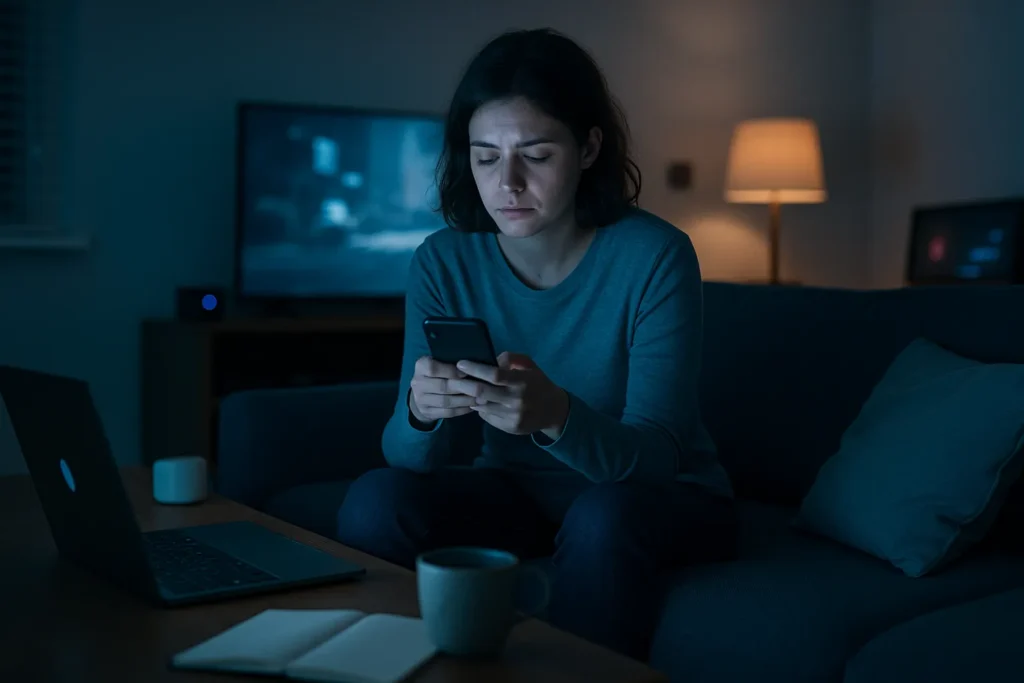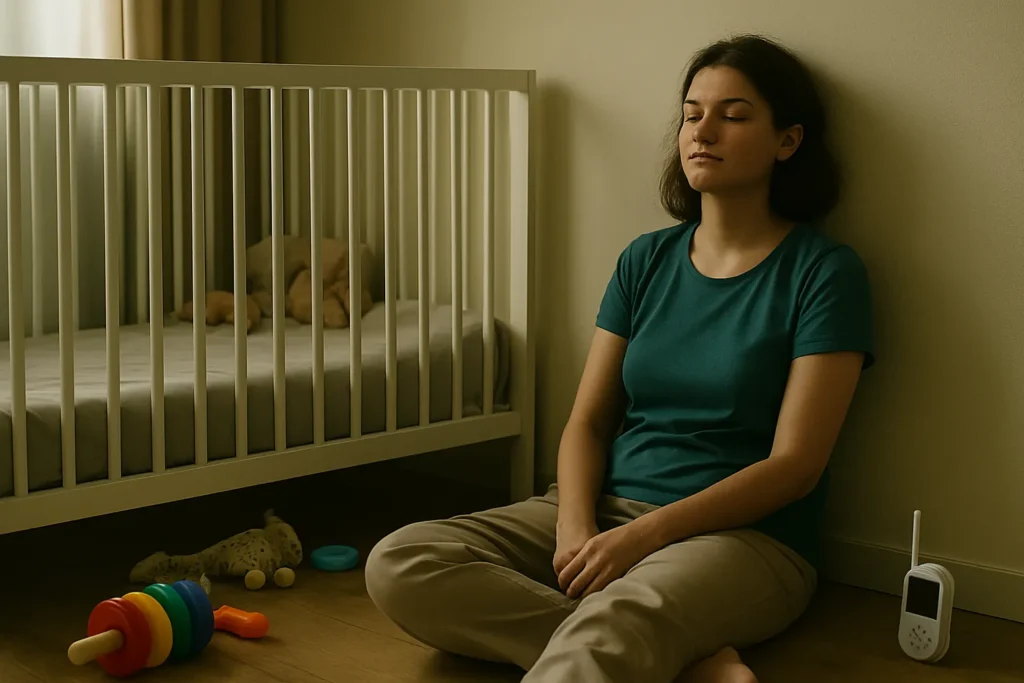Have you ever felt mentally drained… even on days when you haven’t done much physically?
Maybe your body is sitting still, but your mind won’t slow down—spinning with to-do lists, notifications, missed calls, and news headlines. If that sounds familiar, you’re not alone. In fact, for many of us, this nonstop mental pressure has become so common that we’ve started calling it “normal.”
But should it be?


As we race through our packed schedules and digital lives, it’s worth pausing to ask: How does modern lifestyle affect mental health? And more importantly—what can we do about it?
Let’s unpack the science, the warning signs, and the solutions—so you can start making choices that protect your well-being and restore some peace in this high-speed world.
Table of Contents
How Does Modern Lifestyle Affect Mental Health
We’re more connected than ever before. Yet somehow, many of us feel more disconnected than we ever have—especially from ourselves.

Modern life brings with it a unique mix of chronic stressors:
- Tight work deadlines
- Constant notifications
- Long hours in front of screens
- A culture that praises hustle over rest
The result? Burnout, anxiety, brain fog, and emotional fatigue have quietly crept into our daily routines.
A University of Pennsylvania study found that participants who limited social media to just 30 minutes a day reported significantly lower levels of depression and loneliness. That’s a powerful reminder that some of the very tools we use to stay connected… are actually leaving us feeling worse.
Today’s lifestyle often demands that we stay “always on,” but our minds were never designed for this kind of constant stimulation.
Is My Busy Lifestyle Harming My Mental Health?
You check your calendar—it’s back-to-back. You eat while replying to emails. Your mind is juggling work, family, errands, and that thing you just remembered while reading this sentence.
Sound familiar?

In a world that celebrates being busy, it’s easy to overlook the cost of it all.
When you’re constantly rushing from task to task, your nervous system doesn’t get a break. This puts your body into a low-grade “fight-or-flight” state, which over time leads to:
- Increased irritability
- Trouble sleeping
- Lack of motivation
- Emotional numbness
- Higher risk of depression and anxiety
A 2017 joint report from Eurofound and the International Labour Organization revealed that remote workers—who are supposed to have more freedom—often end up working longer hours and experiencing more burnout. Why? Because boundaries disappear when everything feels urgent and everyone is just a message away.
Being busy isn’t a badge of honor if it’s costing you your peace.
Can Modern Technology Impact My Mental Health?

Technology is a double-edged sword. On one hand, it’s incredibly useful. We can connect, learn, work, and access support like never before. On the other hand, too much digital input can deeply affect our mental health.
Take a moment to reflect:
- Do you scroll at night instead of sleeping?
- Do you feel anxious if you haven’t checked your notifications?
- Do you compare your life to what you see on social media?
If you answered yes to any of these, you’re already feeling the weight of digital overload.
Studies from the University of Basel show that excessive device use, especially at night, disrupts sleep and increases the risk of anxiety and depression—especially in teens and young adults. Blue light from screens messes with melatonin production, and all that stimulation makes it harder for your mind to wind down.
Social media, in particular, plays on our need for connection and validation—but often leaves us feeling inadequate, left out, or just… empty.
You don’t have to quit technology—just learn to use it in ways that protect, not pollute, your peace of mind.
How Does Stress from Modern Living Affect the Brain?
Chronic stress isn’t just a mental concept—it changes the actual structure of your brain.
Every time you feel stressed, your body releases cortisol. In short bursts, this is normal. But when stress becomes constant, it wears down the very parts of your brain responsible for emotional regulation, memory, and decision-making.
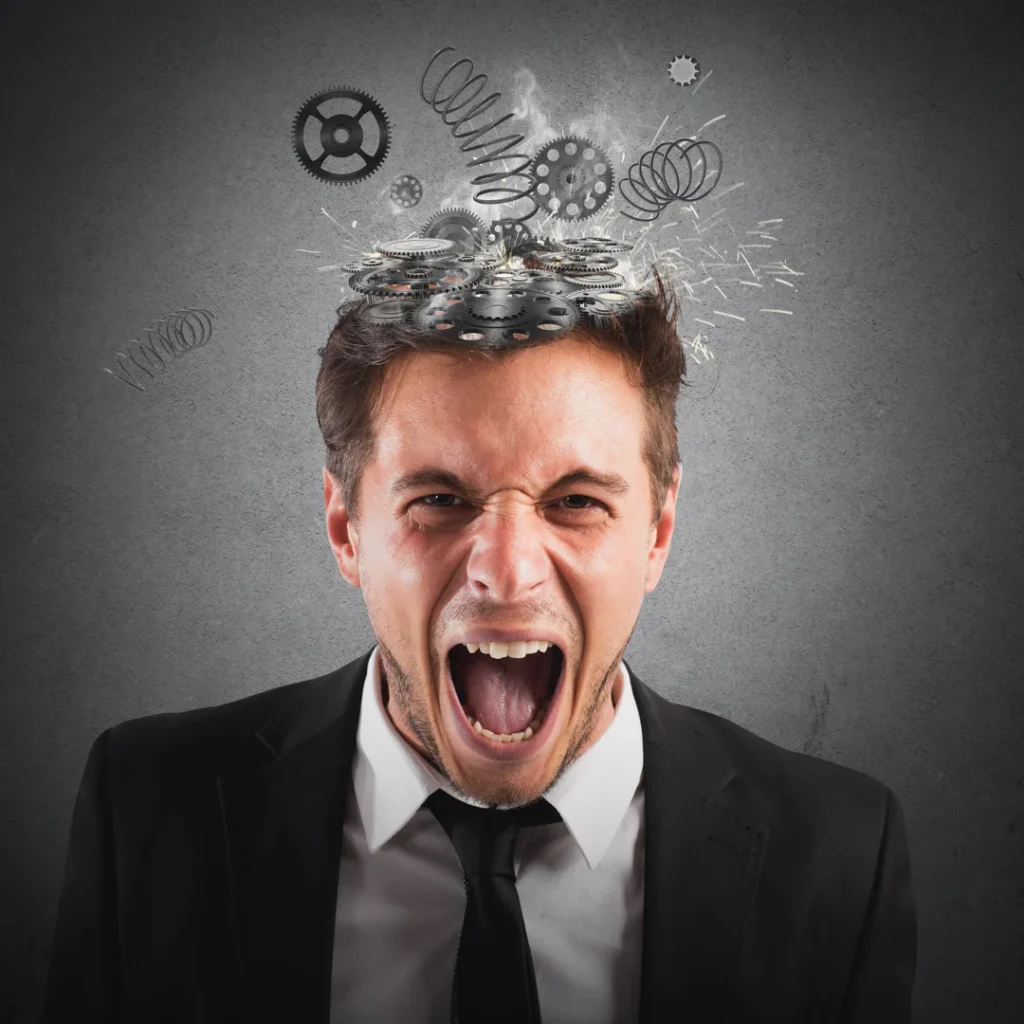
A large-scale NIH study found that toddlers exposed to more than two hours of daily screen time showed early signs of cortical thinning—a marker for lower cognitive performance. Stress impacts developing brains even more dramatically.
In adults, high cortisol levels shrink the hippocampus (the memory center) and impair the prefrontal cortex (decision-making and impulse control). This explains why stress leads to:
- Difficulty concentrating
- Poor memory
- Increased emotional reactivity
- Decision fatigue
Your brain needs recovery time. Stress without rest leads to survival mode—not clarity.
Can Living in the Digital Age Lead to Depression and Anxiety?
Yes. And the science backs it up.
Stanford University researchers found that just 90 minutes spent walking in nature significantly reduced brain activity associated with rumination—those repetitive, negative thought loops tied to depression.
Compare that to the average screen time most people rack up each day.
The digital age presents a constant stream of:
- News
- Notifications
- Curated highlight reels of other people’s lives
- Expectations to reply, update, and stay informed 24/7
All of this fuels anxiety, self-comparison, and overstimulation. Over time, it chips away at self-worth and emotional balance.

Social media in particular has been strongly linked to low self-esteem, FOMO, and increased depression—especially in younger age groups. While it’s marketed as connection, it often breeds comparison and distraction.
You were never meant to consume this much information—or comparison—so quickly.
How to Protect Your Mental Health in Today’s World
Now that we understand the risks, the next step is learning how to protect yourself. Here are a few practical strategies that support mental health protection in the digital age:
✅ Prioritize rest like your mind depends on it—because it does
- Stick to a sleep schedule
- Create a no-screens-before-bed rule
- Take micro-breaks throughout the day
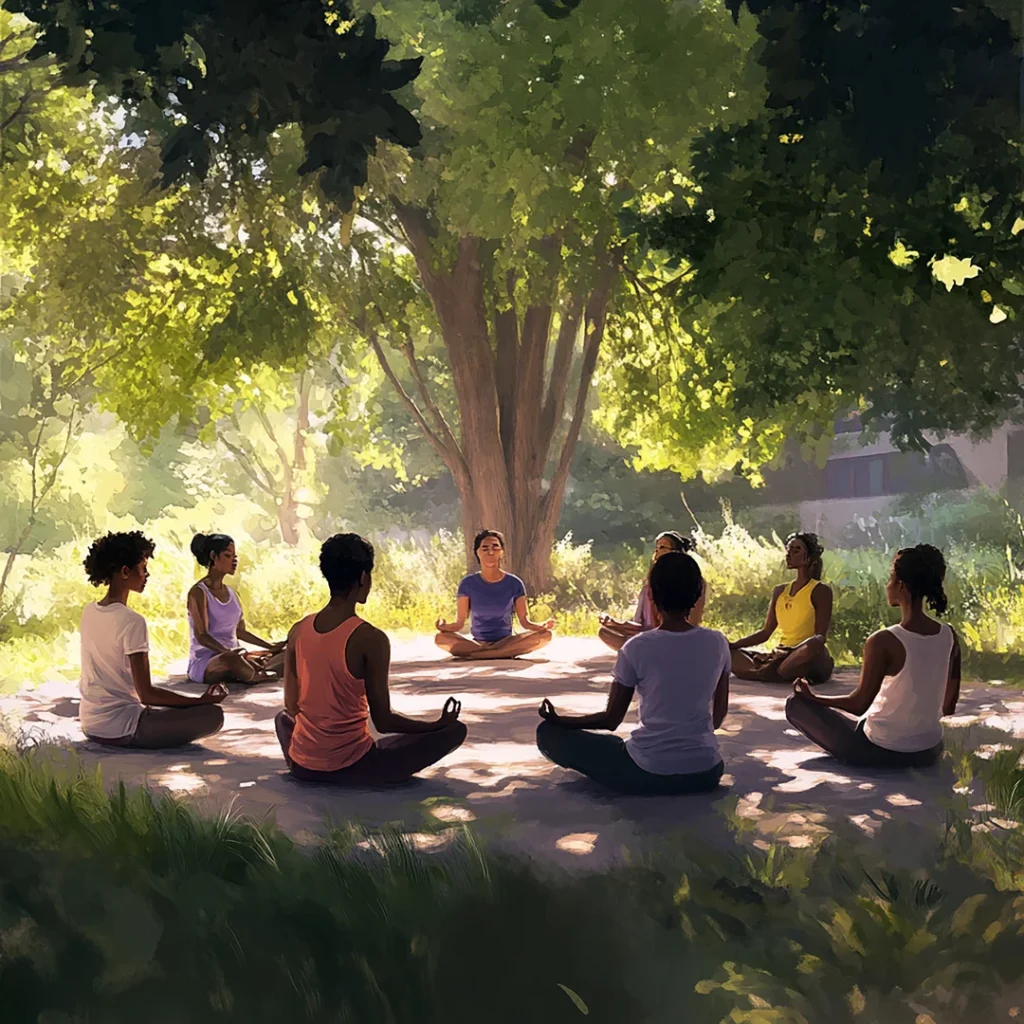
✅ Set clear digital boundaries
- No emails after 8 p.m.
- Schedule screen-free hours
- Unfollow accounts that trigger stress or comparison
✅ Make space for your mind to breathe
- Practice meditation, deep breathing, or even just quiet walks
- Journal to process emotions instead of bottling them up
✅ Choose real connection over digital validation
- Schedule in-person time with friends or family
- Call instead of text when conversations matter
✅ Move your body
- Not for calories—just for clarity. Movement resets your nervous system and lifts your mood.
Mental wellness in this age isn’t accidental—it’s built with conscious choices, one habit at a time.
Is It Possible to Find Balance in Today’s Fast-Paced World?
Yes—but not by trying to “do it all.”
Balance doesn’t come from perfection. It comes from alignment—between your values, your energy, and your habits.

That might mean doing less, saying no, logging off, or slowing down—even when the world is speeding up.
The truth? You don’t need to escape modern life to protect your mental health.
You just need to start living on your terms.
Let your peace be louder than your productivity.
Final Thoughts: You Deserve to Feel Clear, Connected, and Calm
The modern world is loud—but you don’t have to lose yourself in the noise.
By understanding how stress, screens, and speed affect your brain, you’re already halfway to healing. The other half? Small, consistent changes that prioritize your mental clarity and emotional well-being.
So, pause.
Breathe.
Ask yourself: What’s one thing I can change today to feel more mentally well tomorrow?
Because even in a world that never stops moving—you can still choose to slow down.

Check out our insightful articles on personal growth and wellness at Roots, Wings & Wellness.
Join Instagram community to follow interesting perspective on blog takes.
- How to Help Your Kids Navigate Anxiety and Big Emotions
- This One Habit Made Me a Calmer Parent
- You Recycle and Still Feel Powerless? Understanding Eco Anxiety
- What If You’re Not Lazy—Just Overstimulated?
- The Hidden Emotional Cost of Gentle Parenting
FAQ’s
The impact of modern life on mental health often shows up subtly—racing thoughts, trouble focusing, emotional exhaustion, or difficulty sleeping. When you’re constantly connected, over-scheduled, and juggling responsibilities, your nervous system stays in a near-constant state of alert. Over time, this leads to burnout, brain fog, and low mood. So yes, modern lifestyle affects mental health in ways we often normalize, but shouldn’t.
Chronic stress caused by nonstop schedules and digital overload leads to a surge in cortisol—the body’s primary stress hormone. Over time, this can shrink the hippocampus (which affects memory) and impair the prefrontal cortex (which impacts decision-making and emotional regulation). If you’ve been forgetful, reactive, or mentally fatigued lately, this is why stress from modern living and the brain is a serious concern backed by neuroscience.
Yes—even moderate digital use can add up if it lacks boundaries. Devices keep your brain stimulated long after you log off, especially if you’re switching between texts, emails, and social feeds all day. Studies show that technology impacts mental health by disrupting sleep, increasing anxiety, and fueling comparison on social media. The solution isn’t to ditch tech—but to use it more intentionally, with regular digital breaks and mindful screen habits.
Not exactly, but the two are closely connected. Burnout is often triggered by chronic work or lifestyle stress, and if left unaddressed, it can lead to clinical depression. Burnout usually shows up as emotional exhaustion, detachment, and reduced performance. Depression tends to involve deeper emotional patterns like hopelessness, prolonged sadness, or withdrawal from life. It’s important to take both seriously—and seek support when needed.
If you often feel overstimulated, anxious, emotionally drained, or disconnected from yourself—even when you’re not physically active—you may be facing digital burnout. Protecting your mental health in this age requires awareness and boundaries. Ask yourself: Do I wake up and check my phone first thing? Do I feel guilt if I’m not “productive”? If yes, it’s time to implement daily habits focused on mental health protection in the digital age, like sleep hygiene, screen-free time, and real-world connection.
You don’t have to escape your lifestyle—you just have to reshape it with healthier patterns. Here’s how:
- Use time-blocking to create space for rest and creativity
- Take regular movement or nature breaks
- Limit social media scrolling to specific time windows
- Prioritize quality sleep
- Practice saying “no” without guilt
How modern life affects mental health isn’t just about speed—it’s about imbalance. Finding that balance again starts with small, conscious shifts toward rest, boundaries, and presence.









